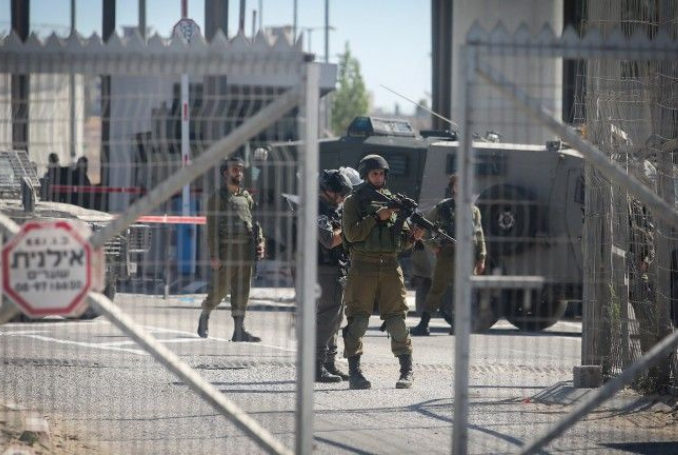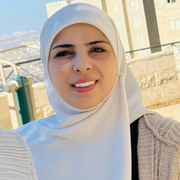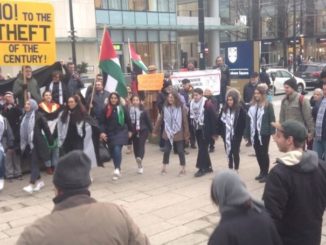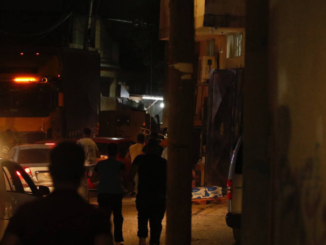
With the intensification of its aggression against the Gaza Strip for nearly a month and a half, Israel is also escalating its attacks against the Palestinian refugee camps in the northern occupied West Bank.
Every week, the Israeli army storms the Jenin camp under the pretext of targeting Palestinian fighters. In the process, however, it deliberately sabotages the infrastructure and destroys its landmarks in an attempt to pressure the popular incubator of the resistance there.
What is also striking is that Israel targets armed fighters through drone bombing, a method that has not been followed in the West Bank for twenty years.
Destroying Infrastructure
Last July, Israel launched an aggression against the Jenin camp that lasted for two days, during which it destroyed the streets and infrastructure.
No sooner had the residents restored them than the Israeli army bulldozed them in this latest aggression that has been going on for weeks.
Journalist Raya Arouq from Jenin told The Palestine Chronicle that since October 22, Israel began attacking the camp and destroying its infrastructure and the streets surrounding it. Then it used a drone to bomb a mosque under the pretext that a number of Resistance fighters were holed up near it.
Arouq was on a journalistic mission to cover the events when she found herself trapped in one of the houses in the camp due to the severity of the Israeli attack.
“I had to enter one of the houses … due to the intensification of the soldiers’ gunfire, I stayed there for hours hearing nothing but the sound of shelling, shooting, and people screaming,” she added.
In the last attack, Arouq describes the extent of the fear that overwhelmed her when she witnessed the detention of more than five thousand children in their schools and kindergartens, and their inability for six hours to return to their homes.
“We could hear the sounds of their crying and feel their fear. When the sounds of shooting subsided, we immediately went to check on them, evacuate them, but the Israeli drone was above our heads”, she recounted.
“I felt that all the children were threatened with being killed.”
A state of terror gripped the children and their families. At the same time, the Israeli bulldozers were destroying everything in front of them: the streets, the roundabouts, the water taps, the electricity transformers, the storefronts, and the martyrs’ monuments that people had built to honor them.
“All roads leading to vital institutions and centers that citizens need in their daily lives were destroyed.”
Roads that lead “to hospitals, schools, institutions, or even to neighboring villages, all destroyed by Israeli bulldozers,” Arouq added.
Jenin camp, with its high population density, narrow space, and adjacent houses, as Arouq described, is very similar to the Gaza Strip.
What happens there resembles the aggression against Gaza, as well as the unsuccessful attempts to silence the Resistance.
The Real Goals
The same method was followed by Israel in the Nur Shams camp near Tulkarm a few weeks ago, when the Israeli army killed several young men and children through a drone bombing, bulldozed the streets and destroyed the infrastructure.
Researcher and political analyst Suleiman Bisharat told The Palestine Chronicle that what Israel is doing in these camps stems from its invocation of the West Bank’s role in the various stages of confrontation.
This always drives it to fear any situation of awakening after Operation Defensive Shield in 2002, through which it was able to destroy the infrastructure of the Palestinian organizations.
A year and a half ago, the northern West Bank region emerged as the geographical space that restored its militarily resistant presence.
All of these turned into models that were able to open the way for dozens of Palestinian youth, from all political affiliations, to engage in armed action.
Bisharat explained that this posed a challenge to the Israeli army because it was unable to prosecute under an organizational name or predict who would participate in these formations. So it was a constant source of concern for it.
“With the beginning of the current war on Gaza, it seems that Israel found it an appropriate opportunity to increase the pace of targeting, given that it has international cover, and there will be no criticism of any field work or crimes it carries out in the West Bank,” Bisharat said.
According to him, these Israeli attacks on Jenin and Tulkarm are aimed at ending the Resistance in the northern West Bank so that it does not extend to other cities, and so that the aggression against Gaza is not an opportunity to open another battlefront, which weakens the Israeli army.
“Also, the attacks on the northern West Bank are aimed at ensuring any future arrangements within Israel’s vision of expanding settlements. Therefore, the presence of any actual resistance will work to obstruct this project,” Bisharat concluded.

– Fayha’ Shalash is a Ramallah-based Palestinian journalist. She graduated from Birzeit University in 2008 and she has been working as a reporter and broadcaster ever since. Her articles appeared in several online publications. She contributed this article to The Palestine Chronicle.







